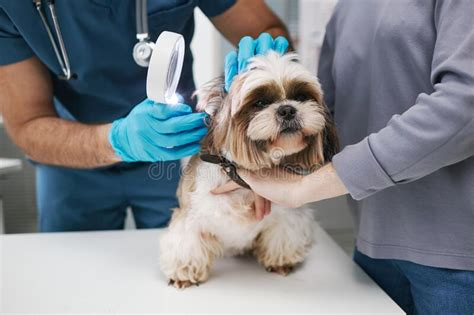Discover if it's safe to wash your dog's eye with salt water, learn proper canine eye care techniques, and understand when to seek veterinary help for eye issues.
Is your furry friend experiencing eye discomfort? As a concerned pet owner, you might be wondering, "Can I wash my dog's eye with salt water?" This comprehensive guide will answer that question and provide you with essential information about canine eye care, common eye problems, and safe cleaning methods.
Understanding Canine Eye Health
Before we dive into the specifics of using salt water for dog eye cleaning, it's crucial to understand the importance of canine eye health. Dogs rely heavily on their vision, and maintaining proper eye hygiene is essential for their overall well-being.
Common Eye Problems in Dogs
Dogs can experience various eye issues, ranging from minor irritations to severe conditions. Some common problems include:
- Conjunctivitis (Pink Eye)
- Dry Eye Syndrome
- Corneal Ulcers
- Cataracts
- Glaucoma
Certain breeds, such as Pugs, Bulldogs, and Cocker Spaniels, are more prone to eye issues due to their facial structure or genetic predisposition.
Can I Wash My Dog's Eye with Salt Water?
The short answer is: yes, you can use a saline solution to clean your dog's eyes, but it's essential to use the right concentration and technique. A properly prepared saline solution can be an effective and gentle way to remove debris and soothe minor eye irritations.
Making a Safe Saline Solution for Dog Eye Cleaning
To create a safe saline solution for your dog's eyes, follow these steps:
- Boil 1 cup of distilled water
- Add 1/4 teaspoon of salt
- Allow the solution to cool to room temperature
- Store in a clean, airtight container
It's crucial to use the correct salt-to-water ratio to avoid irritating your dog's eyes.

Proper Technique for Washing Your Dog's Eyes
When cleaning your dog's eyes with a saline solution, follow these steps:
- Wash your hands thoroughly
- Soak a clean, soft cloth or cotton ball in the saline solution
- Gently wipe from the inner corner of the eye outward
- Use a fresh cloth or cotton ball for each eye
- Avoid touching the eye directly with the cloth
Remember to be gentle and patient, as your dog may be uncomfortable with the process at first.
When to Seek Veterinary Help
While minor eye irritations can often be managed at home, certain symptoms require immediate veterinary attention. Contact your vet if you notice:
- Excessive tearing or discharge
- Redness or swelling
- Cloudiness or change in eye color
- Squinting or pawing at the eye
- Visible foreign objects
A veterinary ophthalmologist can provide specialized care for more severe eye conditions.
Alternative Eye Cleaning Methods for Dogs
In addition to saline solution, there are other safe methods for cleaning your dog's eyes:
-
Commercial Eye Wipes: Specially formulated for pets, these wipes are convenient for regular cleaning.
-
Veterinary Eye Wash: Available over-the-counter, these solutions are designed specifically for canine eye care.
-
Warm Water: In a pinch, clean, warm water can be used to gently wipe away debris.
Always consult with your veterinarian before introducing new eye care products or methods.
Preventing Eye Problems in Dogs
Prevention is key when it comes to maintaining your dog's eye health. Here are some tips:
- Regular grooming to keep hair away from the eyes
- Protecting your dog's eyes during baths
- Avoiding irritants like shampoo or soap near the eyes
- Providing a balanced diet rich in eye-healthy nutrients
- Regular veterinary check-ups
By incorporating these practices into your routine, you can help keep your dog's eyes healthy and bright.
FAQ: Dog Eye Care and Cleaning
Q: How often should I clean my dog's eyes? A: For most dogs, cleaning once or twice a week is sufficient. However, breeds prone to eye issues may require more frequent cleaning.
Q: Can I use human eye drops on my dog? A: No, never use human eye drops on your dog without veterinary approval. Canine eyes have different pH levels and sensitivities.
Q: Is it normal for dogs to have eye discharge? A: Some clear discharge is normal, but excessive or colored discharge may indicate an underlying issue.
Q: How can I tell if my dog has an eye infection? A: Signs of eye infection include redness, swelling, discharge, squinting, and pawing at the eye.
Q: Can diet affect my dog's eye health? A: Yes, a balanced diet rich in vitamins A, C, and E can contribute to good eye health in dogs.
Conclusion: Best Practices for Canine Eye Care
In conclusion, while you can wash your dog's eye with a properly prepared salt water solution, it's essential to approach canine eye care with caution and knowledge. Regular cleaning, preventive measures, and prompt veterinary attention when needed are key to maintaining your dog's eye health.
Remember, your dog's eyes are not just windows to their soul – they're vital organs that require proper care and attention. By following the guidelines outlined in this article and staying vigilant about your pet's eye health, you can help ensure that your furry friend continues to see the world clearly and comfortably.
If you have any concerns about your dog's eye health or need personalized advice on eye care techniques, don't hesitate to consult with your veterinarian. They can provide tailored recommendations based on your dog's specific needs and health status.
